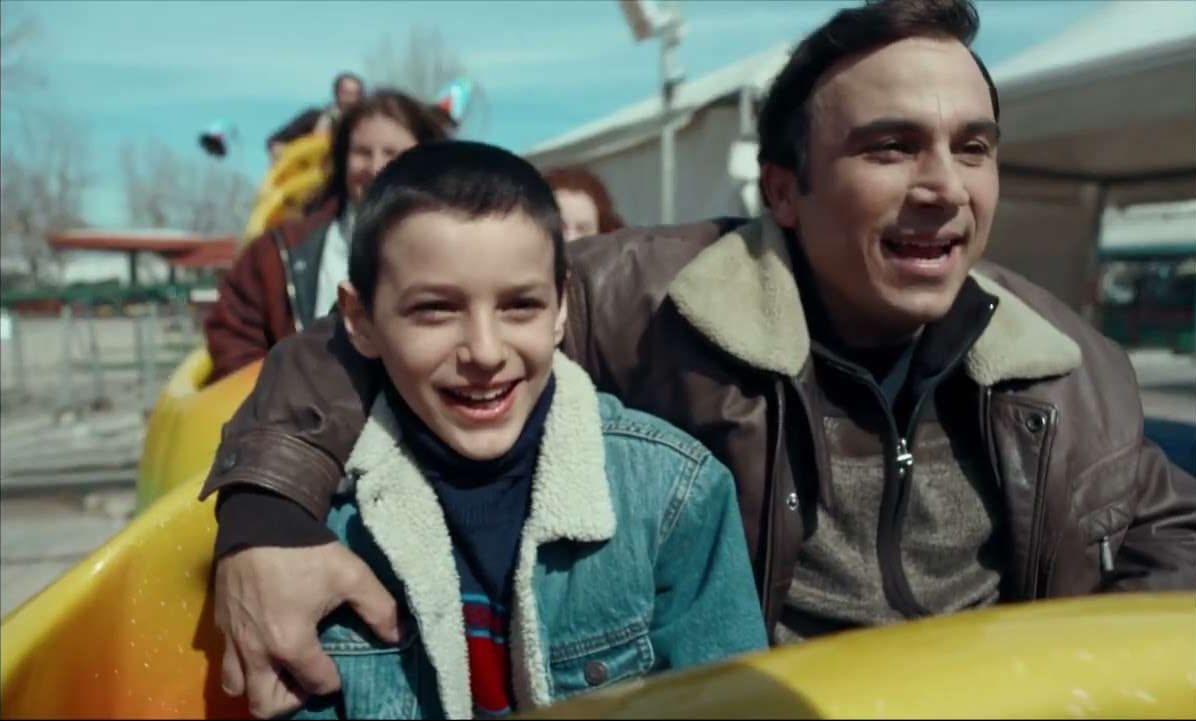Based on Luigi Celeste’s memoir, Francesco Costabile’s “Familia” is an acute, distressing dissection of the specter of domestic abuse and violence that hangs over a family. Years may pass, but the grip of violence doesn’t loosen. It reappears in spurts when one thinks things are relatively normal and manageable. It’s an incontrovertible realization of one’s helplessness in the face of this vicious cycle. There’s only doom if one doesn’t remove oneself from such a damaging relationship. The film especially scores in its understanding of the fear that makes a person feel so trapped that they have no recourse but to accede to the assailant.
How does one rescue themselves when this rut of psychological conditioning firmly stands in the way? Healing is deferred. Escape from misery is endlessly postponed. One keeps reverting back to rounds and rounds of trauma and grief. It’s a wretched situation that Licia (an expertly wound-up Barbara Ronchi) is stuck in. When the film opens, her husband, Franco (Francesco Di Leva), finishes his prison term. His abusive streak first comes to us through clipped, hushed flashbacks before we are directly confronted with it.
She tries to stave off a chance for him to reconnect with her and their kids, Alessandro (Marco Cicalese) and Gigi (a sensational Francesco Gheghi, hinting at a deeply wounded interior). She has the locks in the house changed. But his determined insistence on returning to their lives carries a long, impending chain of horrors. Following his words, the kids don’t tell their mother about Franco meeting them. However, Franco bursts into their lives. When Ligi tries to file a police report, it backfires, leading to the kids being taken away from her as well and put away in children’s welfare.
The film leaps several years into the boys in their twenties. The brothers are back with Licia. Everything seems to cohere into a semblance of peace until Franco intrudes once again in their lives. The film recognizes the tortured angst it takes to pluck oneself out of such a relationship. The nervousness and the dread are writ large on Ronchi’s face. There’s a skin-curling vulnerability in her performance.
The screenplay, which Costabile co-wrote with Adriano Chiarelli and Vittorio Morni, is excellent in tapping the fluctuating emotional response to a situation of abuse. Licia keeps giving her husband chances; the benefit of the doubt misfires nearly always. The façade of harmless liveliness cracks every now and then to reveal his insecure, brutal instincts. She is growingly resigned to her life being tragically wasted in complete, constant fear of him.

Where the film fumbles is Gigi’s leanings towards fascist shady operations, he is sucked into crime. The parallels in him, echoing his father’s unscrupulous dealings, are pretty obvious. But he resists it. There’s a thinly etched track with Gigi and his girlfriend, who exhorts him to sever himself from this dodgy life of a drifter fully. But he does feel indebted to the group, a space that has allowed him to take out his rage, albeit in skewed ways.
That’s where the dilemma and the internal wrangling of his character arise. He doesn’t want to resemble his father in any whichsoever way, though there’s a pull towards it. Gigi is wayward and seems almost tied up from taking hold of his life. The elder brother, Alessa, has a job. He’s dutiful, diligent, and resolutely well-mannered. If Gigi is the one going astray, Alessa is right on track and fault-free. He is also the one who’s absolutely unforgiving of his father, whereas Gigi is waveringly open to some contact with Franco. He insists on Gigi not to wilfully forget the violence of their father.
“Familia” suffers from a sloppy focus. It threatens to meander too often, with several of Gigi’s underground scenes and gang clashes appearing inchoate and flat. Even the relationship between the siblings doesn’t move in its depiction beyond a couple of repetitive markers. Gigi also gets detained for several months in a strand that barely registers.
Nevertheless, the film digs with unnerving impact and psychological intensity all the emotional intricacies around grappling with abuse. It’s in capturing the see-saw between getting caught up in its stranglehold and aching for a release that “Familia” rings truest.




![Minari [2021] Review – A breathtaking effort on family and resilience](http://www.highonfilms.com/wp-content/uploads/2021/04/Minari-Movie-1-768x432.jpg)


![The Foul King Review [2000]: Another Winning Effort From Kim Jee-woon & Song Kang-ho](http://www.highonfilms.com/wp-content/uploads/2018/08/the-foul-king-screenshot-1-768x432.jpg)
